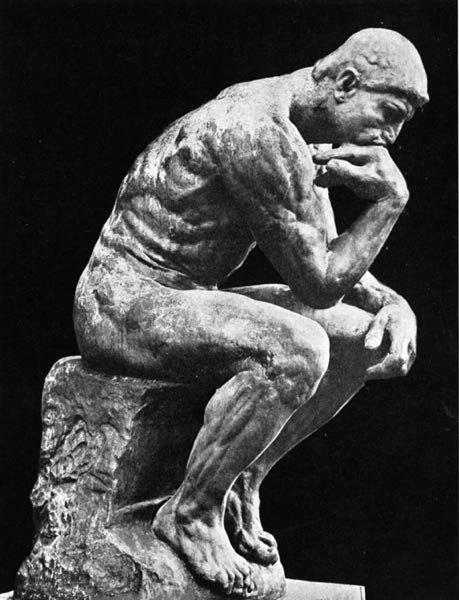Object and definition of Philosophy
The word "philosophy" derives from Greek "phileo", love, aspire to something "sophia", which translates as "love, aiming at truth, wisdom, knowledge." The term has been attributed to himself for the first time by the ancient Greek thinker and scientist Pythagoras, and later enrolled in constant use by the Socratic school. Heraclitus Ephesian also uses the term "philosopher" in the sense of a researcher who studies things in view of their true nature. The words "philosophein" and "philosophia" in the classical writings of antiquity for the first time by springs meet at Herodotus, where the lordian ruler, Craig, speaks to the Atonian legislator Solon: "I heard that you philosopheon traveled many countries for to study them ". Another place with "philosophy" is the knowledge of astronomy . The seven wise men of Greece Herodotus also called "sophists" . This name also uses Pythagoras. The ancient tradition preserved in Diogenes Laertius, Cicero, and other sources associates the particular meaning of the word "philosophy" with Pythagoras. He arrived in Elida in the city of Flios, where, according to tradition, he often talked to local ruler Leon, who marveled at the wisdom and eloquence of the self-wise man and asked him: "What science or art does he consider himself an experienced person?" "In none ot them," said Pythagoras, "I am only a philosopher." This name seemed new and strange to the ruler of Flios. "What are the philosophers and what are they distinguished from others?" - was his question.
Pythagoras replied: "Human life resembles a great marketplace in the Olympic Games as well. At the market there are sellers and buyers who are looking to make a profit. At the Games, the participants run for glory and fame, but there are viewers watching and observing everything. This is also the case in human life: most of them care for wealth, everywhere is urge and movement - some run after one, others after another. In this bumper, however, only some remain indifferent. They contemplate and explore the nature of things and love the knowledge of the truth more than anything - these are the philosophers. They are called philosophers, not wise "sophoi," because wisdom may be just one God, and man is an inward pursuit, a love of wisdom. "Some scholars of history of philosophy from a newer age doubt the truth of this common ancestry and see in it the later legacy of the Socrates-Platonic spirit. The dogmatic nature of Pythagorean philosophy and its firm belief in the power of scientific knowledge is far from fit, according to these scientists, to the Socratic modesty and the awareness of the lack of knowledge in the hero of tradition. On the other hand, Pythagoras' live involvement in political life does not correspond to the clearly expressed attitude towards a contemplative rather than a real life, to the theory, not to the practice we meet later with Plato and Aristotle. It is also noteworthy that in the earliest arrivals to us Pythagorean fragments (attributed to Philolai) the knowledge of all-encompassing harmony are called not "philosophia", but "sophia".
Writers before Plato, and Plato himself, call the most ancient philosophers, including Pythagoras, "sophoi", "sophisai" and not "philosophoi." In view of this, it is perceived that the specific terminological use of "philosophy" of Socrates and Plato. Socrates, in fact, first uses it, embodying the meaning of true wisdom, as opposed to the false "sophistication." His philosophy is to feel critical of yourself, like others. Plato does not once encounter the thought attributed to Pythagoras that wisdom, as absolute truth, belongs only to God, and that man only seeks to seek, to love wisdom - to be a philosopher. Although Aristotle sometimes uses sophia, and "Philosophia" to designate philosophy, but the latter is more meaningful - in particular "the first philosophy" he calls metaphysics. From the time of Aristotle, the terms philosophy and philosophy go into general use, science and everyday life. Ancient philosophers have not given well-defined definitions of philosophy, so we have to extract them from the general content and character of their views. The Ionic School . atomists / links philosophy with cosmogonic and cosmological hypotheses about the origins and development of the world from basic principles and elements. In the Pythagoreans, through it, the nature, form and relationships of things are clarified by means of numerical values in their combinations. For the elites, it is a doctrine of the unified eternal and invariable being, which does not contain the false knowledge of the variable things.

"Sophoi" could very well be the word for Sophist, which would explain why Socrates used the word philosophy in opposition to it, it would explain at least why Sophists are considered to be on the opposite of true wisdom.
Psychology as a field of study is very wide. I wish I could study it for more than two semesters in my university days. This your post reminds me a lot of what I learned about psychology. Thanks man.